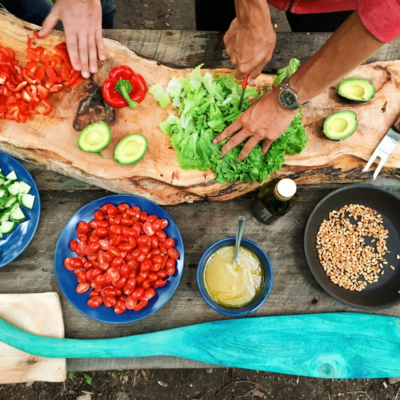The Therapeutic Power of Cooking in Addiction Rehabilitation

In addiction recovery, addressing both the physical and psychological aspects of substance abuse is crucial for long-term success. While traditional methods like therapy and medication play significant roles, there’s growing recognition of holistic approaches like cooking as valuable tools in the recovery journey. Learning to cook or engaging in meal preparation during recovery offers not just nutritional benefits but also serves as a therapeutic avenue. Consequently, many rehabilitation centers, such as Serenity Springs, have an on-site chef who provides individuals with cooking tutorials and culinary guidance to support individuals on their path to healing.
The Transformative Nature of Cooking: Cooking is not merely a practical skill; it’s an immersive experience that engages the senses and fosters creativity. For those grappling with addiction, the act of cooking provides a productive outlet for self-expression and personal growth. By following recipes, experimenting with ingredients, and creating meals from scratch, individuals in recovery find purpose and accomplishment in the kitchen.
Moreover, cooking promotes mindfulness, enabling individuals to focus on the present moment and cultivate awareness of their thoughts and feelings. As they chop, sauté, and taste ingredients, they become attuned to the sensory aspects of cooking, which can help alleviate stress, anxiety, and cravings. This mindful approach empowers individuals to better understand their triggers and develop coping strategies to manage them effectively.
Nutritional Nourishment: Proper nutrition is fundamental to the recovery process, as substance abuse can deplete the body of essential nutrients and compromise overall health. Learning to cook equips individuals with the knowledge and skills needed to make healthier food choices and prepare balanced meals. Consultations with a dietician and an on-site chef at Serenity Springs allow residents to gain insights into the nutritional value of ingredients, meal planning, and cooking techniques.
By incorporating fresh, whole foods into their diets, individuals not only replenish their bodies but also foster a sense of self-care and respect. Cooking becomes a means of nurturing oneself, promoting physical well-being, and establishing a positive relationship with food.
Creative Expression and Identity: In the kitchen, individuals have the freedom to unleash their creativity and explore their culinary interests. Cooking allows them to experiment with flavors, textures, and techniques, fostering a sense of agency and self-discovery. Cooking also offers an opportunity to reconnect with cultural heritage and family traditions associated with food. By exploring diverse cuisines and cooking styles, individuals can celebrate their roots and forge a deeper connection to their identity.
Social Connection and Support: Cooking is inherently social, often serving as a catalyst for meaningful connections and shared experiences. On-site chef programs provide individuals with opportunities to cook and dine together, fostering a sense of community and belonging. Through collaborative meal preparation and shared meals, participants build relationships, strengthen interpersonal skills, and receive support from peers on similar journeys.
These social interactions not only combat feelings of isolation but also provide a source of encouragement, accountability, and camaraderie. Cooking becomes a vehicle for building connections and nurturing relationships, essential elements of the recovery process.
Empowerment and Independence: Learning to cook empowers individuals to take control of their health, well-being, and recovery journey. By mastering culinary skills and adopting healthy eating habits, individuals gain confidence in their ability to make positive choices for themselves. Cooking programs are just another way individuals can improve the practical skills needed to navigate everyday life post-rehab, fostering independence and self-sufficiency.




